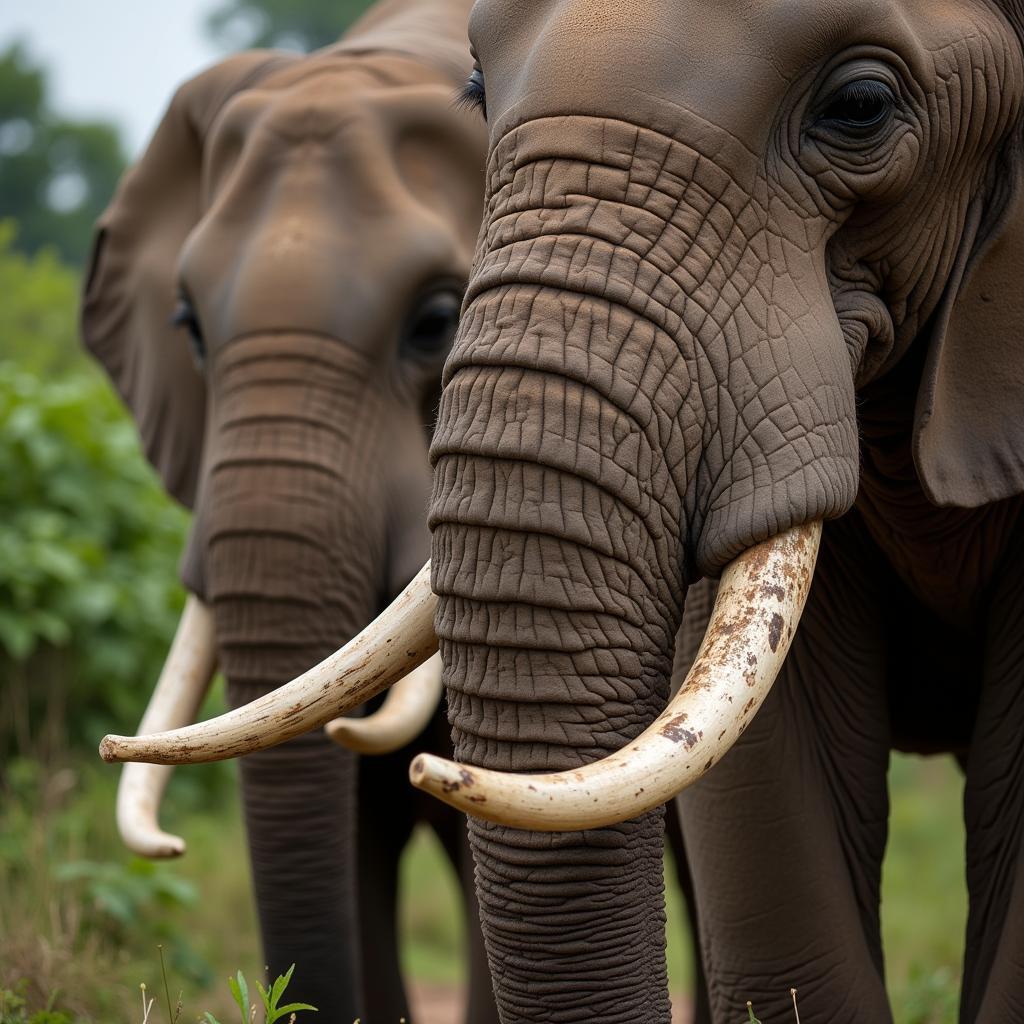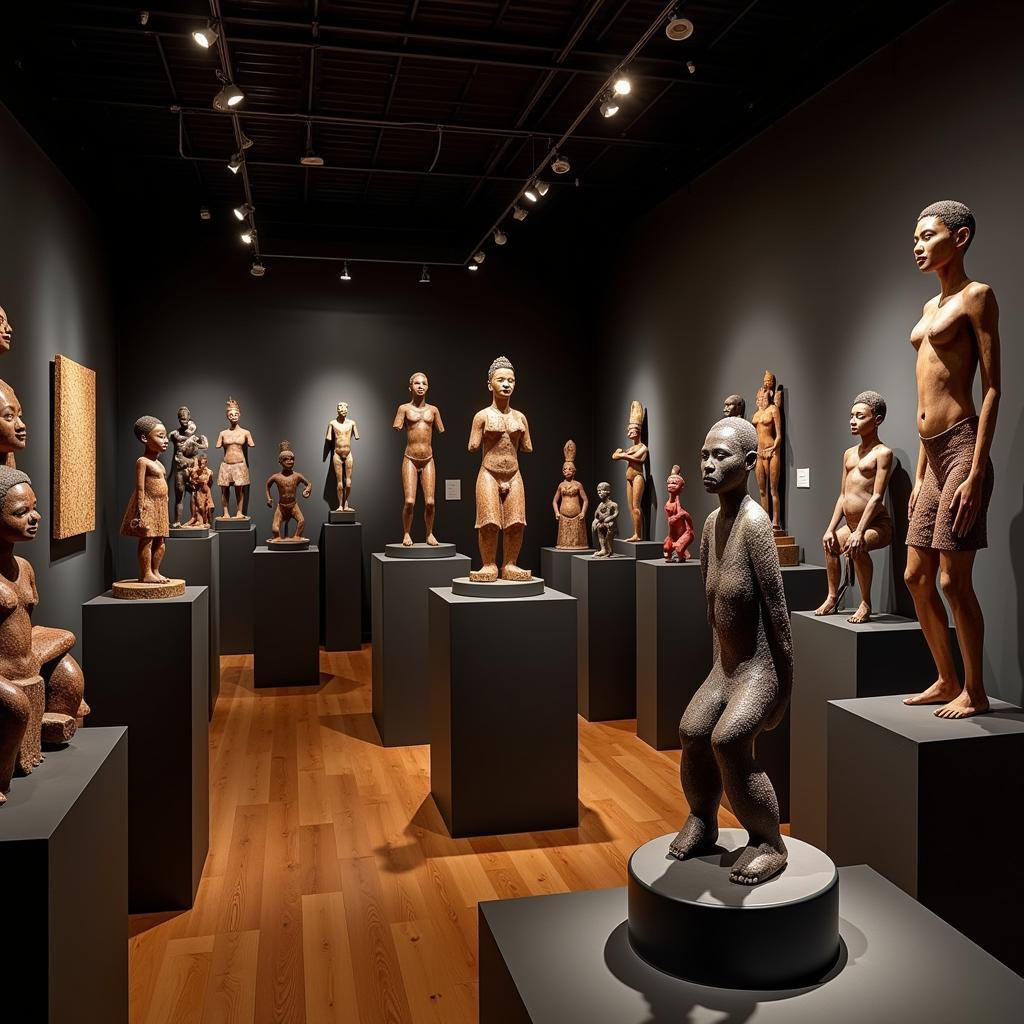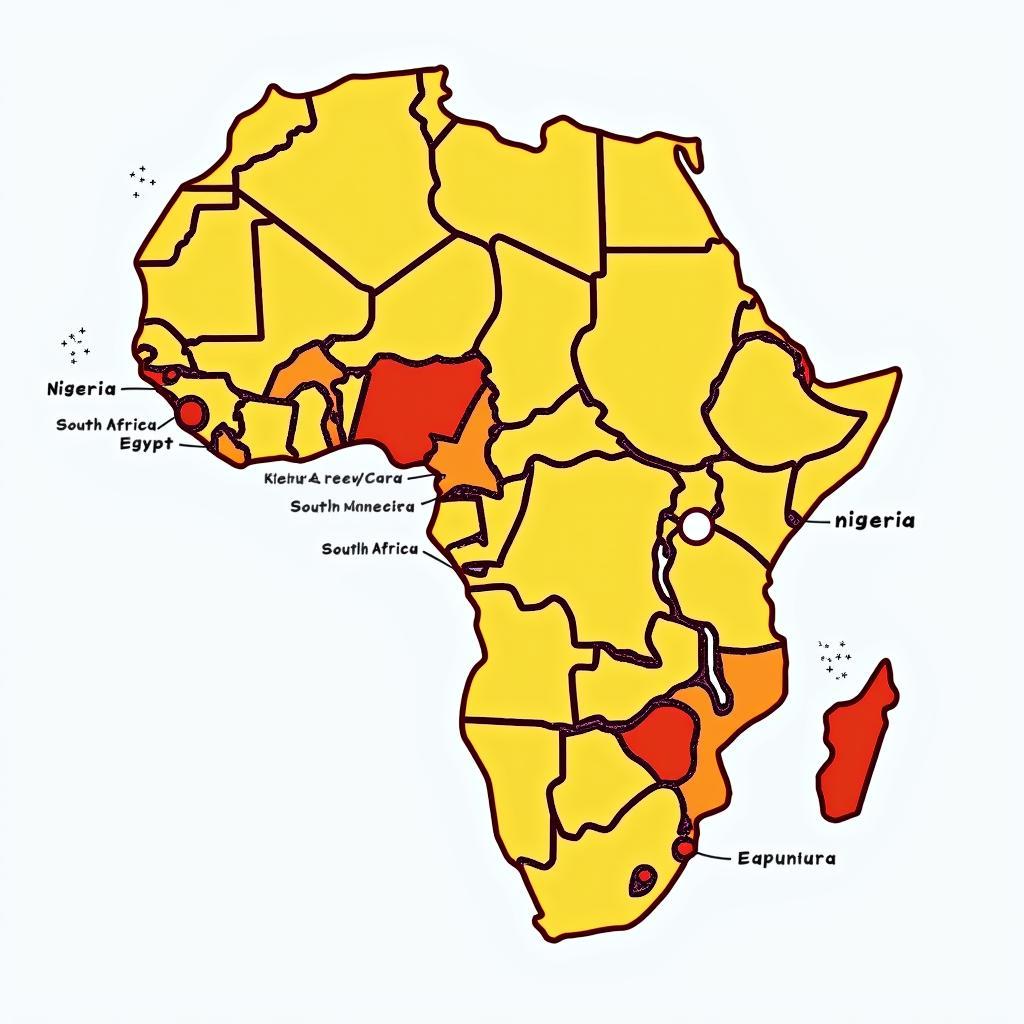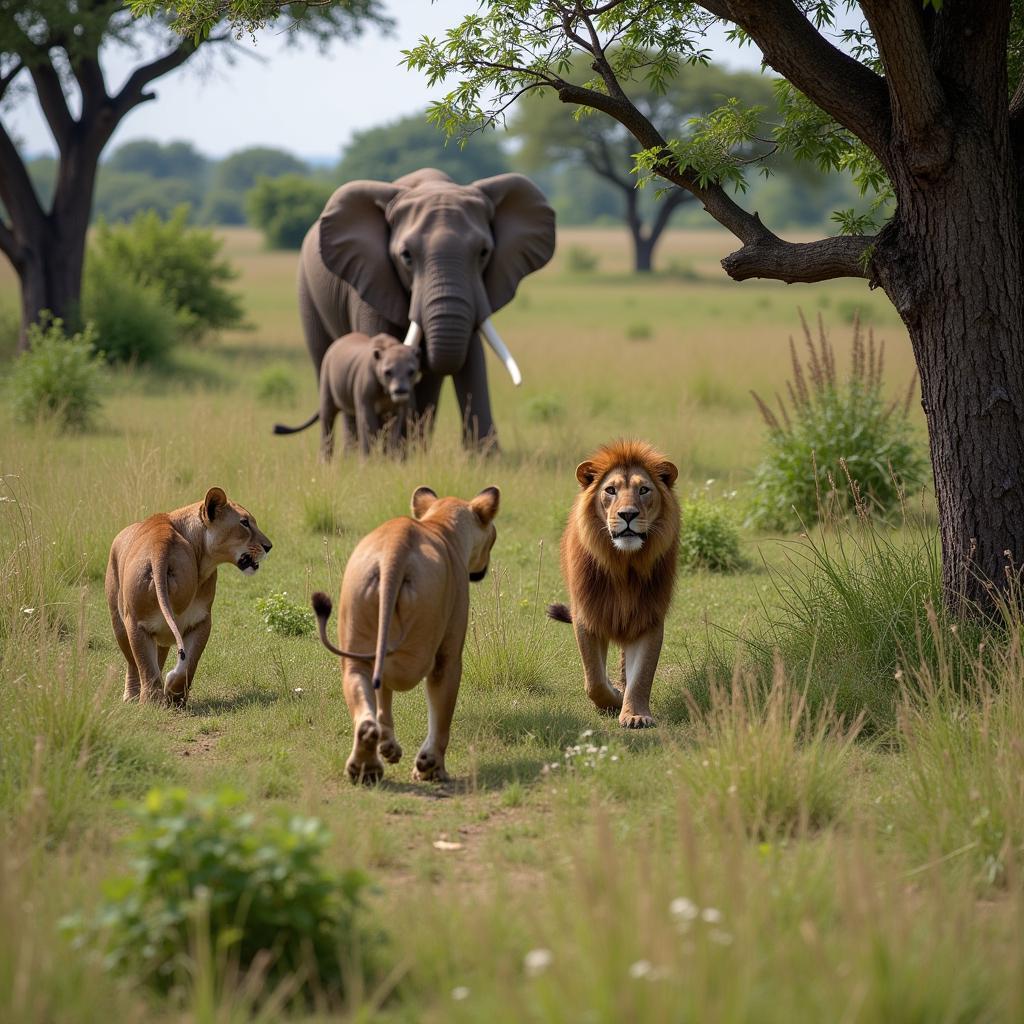Understanding African Foreign Policy
African Foreign Policy is a complex and evolving landscape shaped by historical legacies, contemporary challenges, and the pursuit of continental unity and global influence. From the legacy of colonialism to the rise of pan-Africanism and the complexities of engaging with a rapidly changing global order, understanding African foreign policy requires a nuanced perspective. 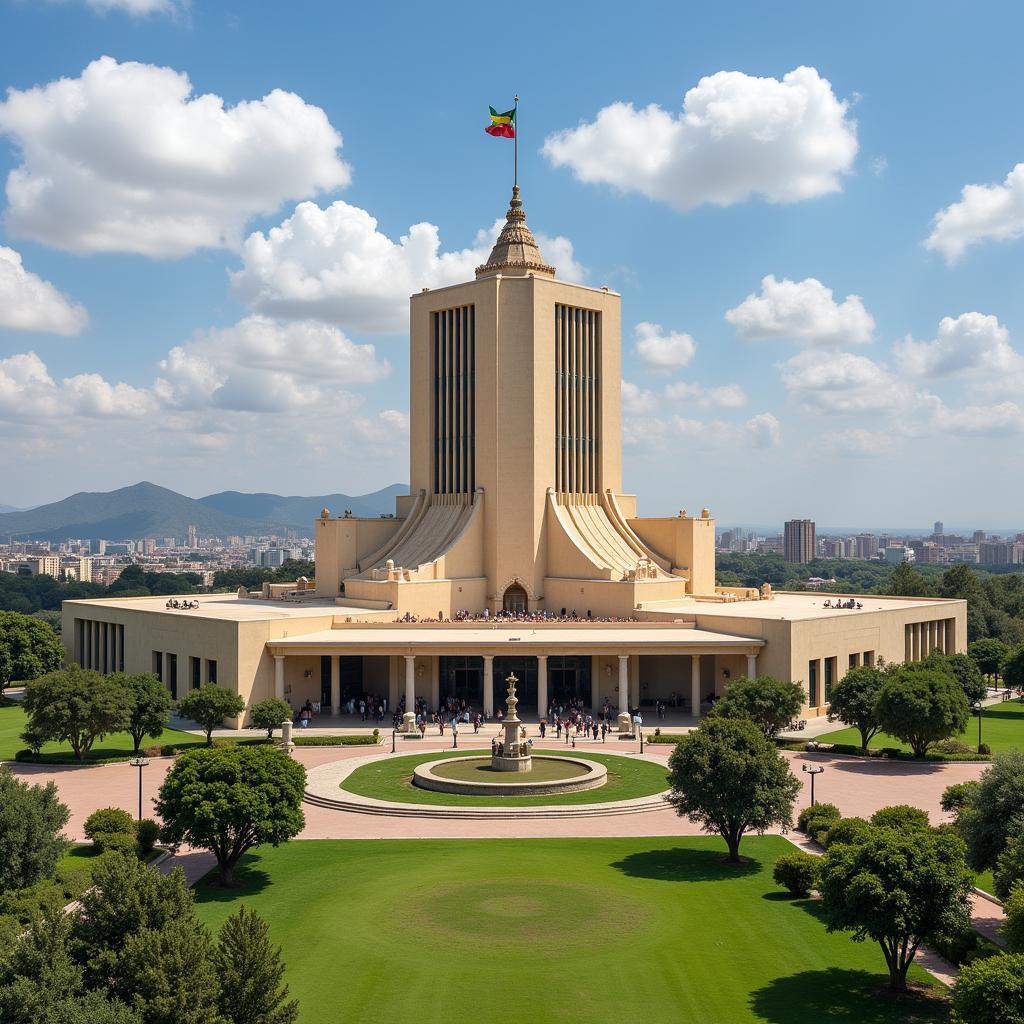 African Union Headquarters in Addis Ababa
African Union Headquarters in Addis Ababa
The Historical Context of African Foreign Policy
The historical backdrop of African foreign policy is inextricably linked to the continent’s experience with colonialism. The arbitrary borders drawn during the colonial era, the exploitation of resources, and the suppression of indigenous political systems have had a profound and lasting impact. The struggle for independence and the subsequent emergence of newly sovereign states in the mid-20th century marked a turning point. This period saw the rise of pan-Africanism, a movement advocating for unity and solidarity among African nations. The formation of the Organization of African Unity (OAU), later transformed into the African Union (AU), embodies this spirit of cooperation and collective action on the international stage.
The Cold War era presented its own set of challenges, as African nations navigated the complexities of superpower rivalry and the pressures to align with either the East or the West. This period also witnessed the rise of non-alignment as a foreign policy strategy, with many African states opting to maintain their independence and pursue their own national interests.
Key Principles of African Foreign Policy
Several core principles underpin African foreign policy. These include the principle of non-interference in the internal affairs of other states, the peaceful settlement of disputes, and the promotion of regional integration and cooperation. The [African free trade zone] is a testament to this commitment. It seeks to create a single continental market for goods and services, facilitating increased intra-African trade and boosting economic growth. Furthermore, the pursuit of sustainable development and the eradication of poverty are central to African foreign policy agendas.
The focus on African solutions to African problems underscores the continent’s determination to take ownership of its own development trajectory and to shape its own destiny. This is reflected in the AU’s Agenda 2063, a strategic framework for the socio-economic transformation of the continent over the next fifty years.
What are the main objectives of African foreign policy? These are diverse but often center around promoting peace and security, fostering economic development, and advancing the continent’s voice and influence in global affairs.
Challenges and Opportunities in African Foreign Policy
African nations face a multitude of challenges in navigating the complexities of the 21st century. These include issues such as climate change, terrorism, poverty, and inequality. Many African countries are also grappling with the effects of globalization, including the challenges posed by international trade and investment flows. What is the [south african economy ranking] within the African continent? Understanding the economic dynamics of individual nations provides valuable insights.
Despite these challenges, there are also significant opportunities for African countries to leverage their resources, strengthen their partnerships, and assert their role in the global arena. The growing economic dynamism of several African countries, the continent’s youthful population, and its vast natural resources represent significant assets. The [African free trade zone agreement] has the potential to unlock significant economic opportunities for the continent.
Dr. Abimbola Adebayo, a renowned expert in African politics, states, “African foreign policy is about more than just reacting to external pressures. It is about proactively shaping the continent’s engagement with the world and pursuing its own strategic interests.”
Engaging with the Global Community
African countries are actively engaging with the global community on a range of issues, from trade and investment to climate change and security. The African Union plays a crucial role in coordinating these efforts and representing the collective interests of the continent on the international stage. Access to resources like [a guide to african politics pdf] can deepen understanding of these complex political dynamics.
The rise of new global powers and the shifting geopolitical landscape present both challenges and opportunities for African countries. Navigating these complexities requires a strategic approach that balances the pursuit of national interests with the need for regional and global cooperation.
Professor Chinua Achebe, a respected scholar on African studies, observes, “African nations are increasingly assertive in their foreign policy engagements. They are seeking to build partnerships based on mutual respect and shared benefits.”
Conclusion
African foreign policy is a dynamic and multifaceted field that reflects the continent’s rich history, diverse cultures, and evolving aspirations. Understanding the historical context, key principles, and contemporary challenges is crucial for comprehending the complexities of African foreign policy in the 21st century. As Africa continues to rise as a major player on the global stage, its foreign policy will play an increasingly important role in shaping the future of the continent and the world.
FAQ
- What is the African Union’s role in foreign policy?
- How does colonialism impact African foreign policy today?
- What are the main challenges facing African foreign policy?
- What are the key principles of African foreign policy?
- How are African nations engaging with the global community?
- What are some examples of successful African foreign policy initiatives?
- What is the future of African foreign policy?
Need support? Contact us 24/7: Phone: +255768904061, Email: kaka.mag@gmail.com, or visit us at Mbarali DC Mawindi, Kangaga, Tanzania.
